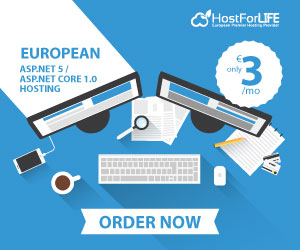
July 10, 2025 08:19 by
 Peter
PeterNode.js is a robust framework for JavaScript server-side application development. GET, POST, PUT, and DELETE are the fundamental methods of every CRUD (Create, Read, Update, Delete) action, and we'll show you how to create a basic REST API that supports them in this article.

To keep things clear and easy, we'll use the well-liked Express framework.
First, start a Node.js project
To begin, make a new folder for your project and set up npm for it.
mkdir nodejs-api-demo
cd nodejs-api-demo
npm init -y
Then, install Express,
npm install express
Step 2. Create the API Server
Create a file named server.js and write the following code.
const express = require('express');
const app = express();
const port = 3000;
app.use(express.json()); // Middleware to parse JSON
let items = []; // Sample in-memory data store
// GET all items
app.get('/api/items', (req, res) => {
res.json(items);
});
// POST a new item
app.post('/api/items', (req, res) => {
const newItem = {
id: Date.now(),
name: req.body.name
};
items.push(newItem);
res.status(201).json(newItem);
});
// PUT (update) an item by ID
app.put('/api/items/:id', (req, res) => {
const id = parseInt(req.params.id);
const index = items.findIndex(item => item.id === id);
if (index !== -1) {
items[index].name = req.body.name;
res.json(items[index]);
} else {
res.status(404).json({ message: 'Item not found' });
}
});
// DELETE an item by ID
app.delete('/api/items/:id', (req, res) => {
const id = parseInt(req.params.id);
const initialLength = items.length;
items = items.filter(item => item.id !== id);
if (items.length < initialLength) {
res.json({ message: 'Item deleted' });
} else {
res.status(404).json({ message: 'Item not found' });
}
});
// Hello World Endpoint
app.get('/', (req, res) => {
res.send('Hello, World!');
});
app.listen(port, () => {
console.log(`Server running at http://localhost:${port}`);
});
Step 3. Run Your API
Start your server using.
node server.js
Open your browser and go to:http://localhost:3000/ You should see "Hello, World!"
Use tools like Postman, Insomnia, or curl to test other endpoints:
- GET http://localhost:3000/api/items
- POST http://localhost:3000/api/items with JSON body: { "name": "Apple" }
- PUT http://localhost:3000/api/items/123456789 with JSON: { "name": "Banana" }
- DELETE http://localhost:3000/api/items/123456789
Summary
In this tutorial, you learned how to.
- Initialize a Node.js project
- Install and use Express.js
- This setup is great for learning. For production, consider connecting to a real database, such as MongoDB, PostgreSQL, or MySQL.
- Handle JSON data and HTTP methods (GET, POST, PUT, DELETE)
- Build a basic in-memory CRUD API